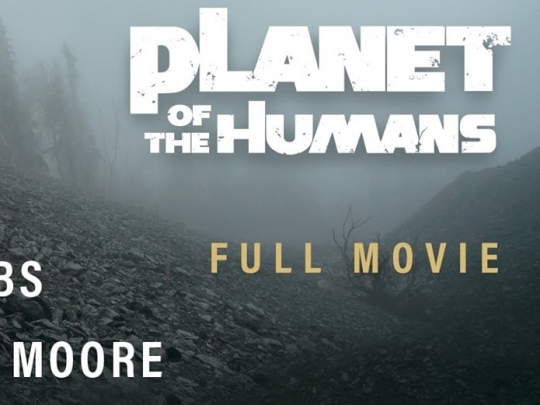Michael Moore’s latest film targeted ‘renewables’ & accused ‘green’ groups of being in Big Energy’s pockets. It hit a nerve (Part 3)

Perhaps most telling is the critics’ demand that the film be pulled from circulation altogether because it is “dangerous.” Even if Moore were a “climate change-denying Koch Brothers shill” – which he’s clearly not – he’d be far from alone in the world of online cinema, as plenty of films matching that description are making the rounds daily without running into such shrill opposition from environmental heavy-hitters.
But Moore has credibility in “green” and activist circles, and his expose has the ability to take the wind out of the sails of the popular movements currently exerting pressure on institutions and governments to divest from fossil fuels and invest in “renewables.” Who would take to the street to demand divestment from oil and gas knowing that money invested in “renewables” will only go back into the pockets of the same fossil fuel profiteers?
There are other complaints with Moore’s film, of course. Many have pointed to its apparent focus on what is euphemistically called “population control” as the only possible solution to the climate change problem. In fact, there are other ways – such as the world’s biggest resource-consumers, the military-industrial complex, winding down their activities – to rein in human consumption.
But most of Moore’s ‘green’ critics don’t take issue with the Malthusian – and understandably objectionable – notion that humanity’s problems can be solved ‘only’ by ridding the planet of all those ‘excess’ people, and neither do the oligarchs like Bloomberg and Grantham whose hypocrisy is exposed in the film.
Indeed, the documentary’s critics and its maker differ only on their willingness to perpetuate the comforting delusion that the same people who created the climate change “crisis” could be trusted to solve it. So while these critics may deride Moore as an eco-fascist, it’s the subjects of his film who truly deserve that moniker.
As for who’s more dangerous – the companies suggesting biomass, living things like plants and animals, is a sustainable fuel on which to power the future; or a filmmaker pointing out their hypocrisy – that’s best left up to the viewer to decide.
- Source : Helen Buyniski


















